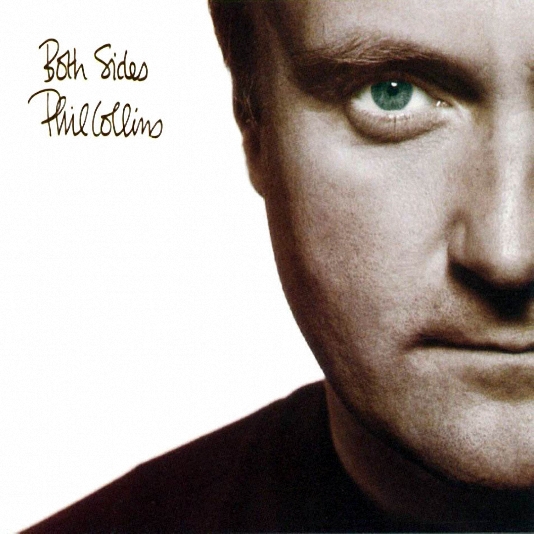
Both Sides (1993)

1.Both Sides of the Story
2.Can't Turn Back the Years
3.Everyday
4.I've Forgotten Everything
5.We're Sons of our Fathers
6.Can't Find My Way
7.Survivors
8.We Fly So Close
9.There's a Place for Us
10.We Wait and We Wonder
11.Please Come Out Tonight
By the time Both Sides appeared in 1993, Phil Collins’ seemingly unstoppable commercial streak had begun to slow. The 1980s had been a decade of dominance, both as a solo artist and with Genesis, but the '90s ushered in a shift in public taste — and Collins, now without his band for the first time in over two decades, found himself on increasingly unfamiliar ground.
Both Sides marked his first post-Genesis solo album, and in many ways, it was a clean break — not just from the band, but from the brassy, crowd-pleasing pop sheen that had defined much of his previous work. Unfortunately, while the intentions may have been noble, the results were markedly less compelling. What we’re left with is Collins’ most personal, most insular, and, sadly, his most difficult album to sit through.
There’s no denying the emotional honesty at work here. Collins was in the midst of a second divorce and, by many accounts, a midlife crisis. The mood is subdued, melancholic, and frequently funereal. The entire album was written, performed, and produced by Collins himself — a considerable technical feat, but one that comes at a cost. The record feels undercooked, with many tracks stretching well past the six-minute mark despite offering little in the way of melodic or structural development. What might have worked as intimate confessionals too often become meandering dirges.
The "title" track, Both Sides of the Story, is the strongest piece — a socially aware, well-produced number that retains some of the grandeur of Collins’ better material. It’s also, at six-and-a-half minutes, at least ninety seconds too long. Still, it’s one of the few songs here that feels complete.
Elsewhere, the mood stays stubbornly flat. We Wait and We Wonder shows flashes of thematic ambition, with political overtones that echo his former bandmate Peter Gabriel’s more pointed work, though the comparison ultimately highlights what’s lacking. Can’t Find My Way attempts a similar introspective weight but falls short of its aspirations. Meanwhile, Everyday, the album’s requisite ballad, comes across as an echo of better songs — Against All Odds, Do You Remember? — but without their memorability or emotional punch.
The rest of the album drifts along in a haze of drum machines, soft synth beds, and low-key anguish. Too long, too similar, and too unpolished, the songs blur together in a way that feels less cohesive and more monotonous. Even Collins seemed to acknowledge this in hindsight, choosing to exclude most of these tracks from later live performances.
In theory, Both Sides could have served as catharsis — a quiet exorcism of personal demons through song. But in practice, it’s a weary, bloated document of a man who, while still capable of musical magic, had momentarily lost his sense of editing. A brave effort, perhaps, but not a particularly rewarding one.
Go back to the main page
Go To Next Review